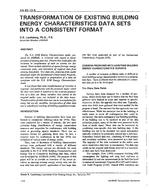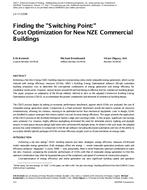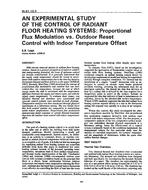A theoretical model for predicting adiabatic capillary tube performance is presented. Model predictions of flow rate were compared to measured data with R134a, R22, R152a, and R410A over a flow rate range of 3 to 350lbm/h (1.4 to 158.8kg/h), which corresponded to a mass flux range of 2.39 to 16.89lb/m/s.in2 (0.17 to 1.19kg/s.cm2). The range of comparisons for capillary tube diameter and length was 0.026 to 0/090in. (0.66 to 2.29mm) and 20 to 200in. (508 to 5,080mm), respectively, while the range of comparison for inlet conditions was 30degF (16.7degC) subcooled to 30% quality. The comparison of the model predictions to the breadth of experimental data provided a comprehensive assessment of the model’s accuracy. Several key modelling issues are addressed – a single-phase friction equation was developed for capillary tubes based on measured data from two independent sources, three two-phase viscosity models were evaluated and a recommendation of the best model was made, and a metastable flow correlation previously reported in the literature was evaluated and the limitations determined.
KEYWORDS: year 1996, calculating, performance, adiabatic, capillary tubes, refrigerants, R134a, R22, R152a, R410A, fluid flow, flow rate, comparing, measuring, accuracy, friction factor, viscosity
Citation: ASHRAE Trans. 1996, Vol.102, Part 2, Paper number 3985 (RP-762), 52-64, 13 figs., 1 tab., refs.
Product Details
- Published:
- 1996
- File Size:
- 1 file , 1.3 MB
- Product Code(s):
- D-16367


